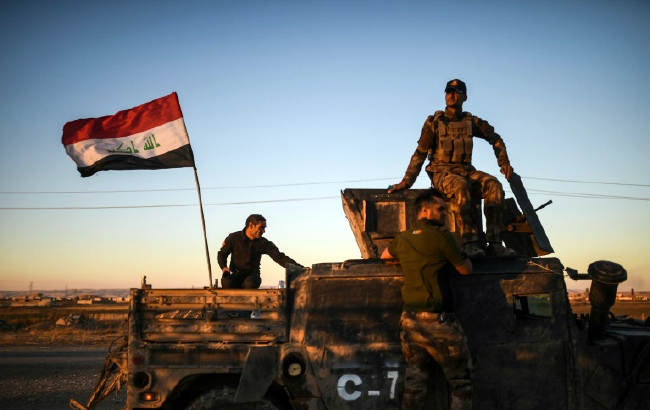In Syria, men, women and children bear the brunt of sectarian violence. The fundamental rights of the ethnic minority groups are violated on the grounds of their race, sex and creed. Their blood is spilt and their liberty and dignity are trampled upon without an iota of mercy. The radical ideology of the self-styled Islamic State (IS) group transgresses the religious tenets and humanitarian law. They pay no heed to humanity and ethical code.
Last month, a young Yazidi woman named, Nadia Murad, was awarded the Vaclav Havel Human Rights Award. Her story is highly moving. In July 2014, Nadia was just an ordinary girl living in the village of Kocho in northern Iraq. In her own words, she lived a simple life, with little idea of just how harrowing life could become.
Yazidis, members of an ancient religious sect, have lived in the region for hundreds of years and have been declared ‘infidel’ by the militant Islamic State group, which was set to kill as many of them as they could. That is exactly what they would try to do to Nadia and her family and thousands of other Yazidis in the village.
On August 15, 2014, Nadia and her family along with the other villagers were told to walk to the school. All around them they saw IS fighters they had previously seen only on television. Once all the villagers were in the building, the men were separated from the women and children. According to the United Nations, 312 men were murdered within one hour, along with six of Nadia’s own brothers and stepbrothers. Young women like Nadia were all grouped together and taken to the Iraqi city of Mosul.
In Mosul, the women were distributed among IS fighters, who have declared all captured non-Muslim women as spoils of war. Many tried to kill themselves by slitting their wrists or even smearing battery acid on their faces rather than bear enslavement. According to Nadia, women would be told to wash and clean up.
Then they were taken to the ‘courts’ that the IS has established in Mosul. There, they would be photographed and their pictures pinned on a billboard. Underneath would be the telephone number of the fighter who currently ‘owned’ them. This was done so that the men could swap women amongst themselves.
One morning it was Nadia’s turn, and she, along with three of her nieces, was marched to the ‘court’. A large man with long hair wanted to take her but she begged another fighter, a tall and thin man, to take her instead.
It would not make her ordeal any easier. The man kept her captive in a room and sexually abused her. Her first attempt at escape did not succeed; instead she was punished by being locked in a room with six IS fighters who abused her until she fell unconscious.
According to IS fighters, who have revived the institution of slavery, women like Nadia were ‘sabia’, or slaves, whom they were entitled to take. One day, one of Nadia’s captors forgot to lock his door and it was then that Nadia managed to escape and run away to safety. She was taken to a refugee camp and managed to eventually escape to Germany.
Nadia Murad’s courage deserves to be acknowledged again and again. It is a testament to the callousness of the world that it is permitting such crimes to occur against women like Nadia. Even more troubling is the fact that millions of Muslims, who take to the streets to protest against controversial images, do not feel similarly compelled to do so against the militant group’s distortion of their faith. Thousands of Yazidis remain in IS captivity and undoubtedly many women like Nadia are being abused even as this article was being written. Many Muslims refuse to believe the accounts of suffering so as to absolve themselves of the responsibility to act.
As Nadia received the award, named after Czech writer and dissident Vaclav Havel, the Czech government was proposing a complete ban on all refugees from the region. As is well-known, most Western countries have undertaken similar legislative measures in recent months, tightening refugee and asylum procedures such that they do not have to provide refuge to the hapless masses that are driven out by the fighting.
It is believed that sectarianism runs in the blood of the IS fighters, who operate under radical ideology. They seek to stoke sectarianism around the globe murdering ethnic minority groups in Islamic societies and extend their realm of influence in Europe through acts of terror and violence. Gaining foothold in Afghanistan, the IS insurgents have engaged in sectarian violence and target the innocent civilian across the country. As a result, a number of travelers, including women and children, were abducted and beheaded within the two past years.
Home » Opinion » A Surge in Sectarianism
A Surge in Sectarianism
| Hujjatullah Zia

